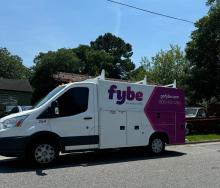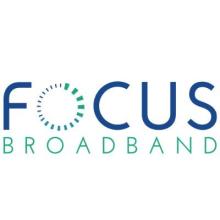
With an incredible resource such as the Greenlight Community Broadband Network in town, leaders in Willson, North Carolina, have the ability to pursue any number of innovations. This past November, Greenlight, Wilson Community College, and the Gig East Exchange held their first Fiber Boot Camp, a training program to certify people interested in working as fiber optic technicians.
Accessibility for Students
The boot camp was borne from a prior course that lasted 10 weeks. The longer course filled up quickly and, recognizing the need for the training, Manager of Outside Plant Gene Scott and his team realized that a more intensive, but shorter course could benefit people from other communities.
“The class filled to capacity right quick. People came from as far away as Salisbury to attend, a two-hour drive each way once a week, for 10 weeks.”
He added, “Affordability was a big factor in our approach. Most fiber certification classes run a few thousand dollars. We want this untapped workforce to have a chance at this training. Our 10-week course was $140.”
The course received an outpouring of positive feedback.
When they realized the high demand for the training and that people all over the state were interested in the course, they knew that making the course a fit for people from other areas of the state would pay off.
“What if we had a fiber boot camp. Something where folks did not have to drive back and forth, but could stay here and get 10 weeks of training in five days?”
...
“To our amazement,” Scott said, “we had representatives from as far away as Asheville sign up.”
Scott discussed the longer course and the plans for the boot camp in our conversation with him for episode two of our special NC Broadband Matters Series. Check it out:
Scott tells WRAL TechWire that his next training program will be a two-year plan:
Next on his list, Scott sees a two-year program feeding through the Wilson Academy of Applied Technology’s high school like the early college program in which Wilson Community College is currently engaged. Students would graduate with both their high school degree and a two-year associate’s degree in fiber optics.
...
“The possibilities mirror the infinite capacity of fiber optics,” Scott quipped. “Wilson is a leader in fiber-optic expertise and our goal is to pass that forward, for our community, for our state and, honestly, well beyond. This is an advanced-skill workforce training program in a core technology on which the entire Internet depends.”







